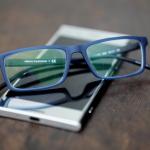Taylorism
Other Science News
“Fluid transport is one of the largest sources of energy consumption in present-day societies and a major part of pumping costs can be attributed to turbulence.”
The first person I told was my academic advisor, who listened carefully and said, “Very good! Now write it up for publication.”
Part of my fascination with the Manhattan Project is the science – in particular, the development of new science, the ability to adapt existing science where called for, and the merging of science with engineering, metallurgy, chemistry, and so mu
“Myopia, or what we commonly call nearsightedness, happens when the eyeball gets too long—it deforms from soccer ball to American football—and then the eye focuses light not on the retina but slightly in front of it, maki
The study was published in PNAS Nexus. Three hundred sixty bots simulated new YouTube users to isolate the onboarding and subsequent algorithmic changes.
“Years ago, I asked a friend what kind of case she planned to buy for her shiny new flip phone. She paused, a little offended. “I don't like to buy stuff for my stuff,” she said.
We seem to be headed back to the Moon, and if Elon Musk can take time away from Twitter, perhaps Mars. What might living in those places be like?
The corporate take-over and consolidation of medicine is well underway. It has been two or three years now that the majority of physicians are employees rather than self-employed.











